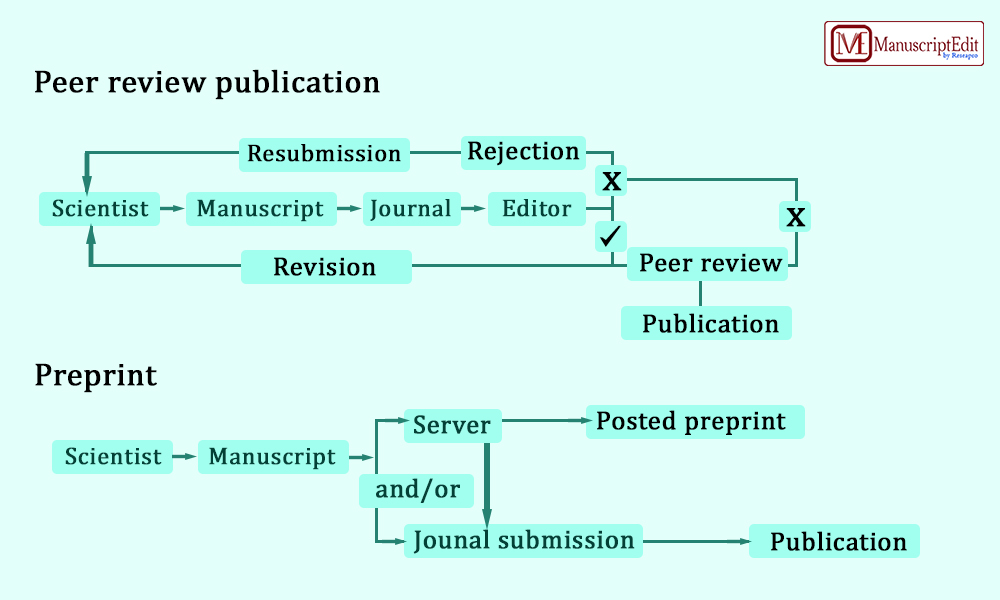
Journal publication has traditionally been a prerequisite for scientific advancement. Still, this is a slow-moving, relatively inaccessible pace. Preprints, as an alternative, have emerged as a transformational breakthrough. Preprints are drafts of scientific publications made available to the public before official peer review. This enables researchers to promptly disseminate their discoveries, which is particularly important in domains with rapid advancements.

What are Preprint Servers?
Preprint servers are digital archives that let you publish this preliminary version of your work online. Preprint servers are increasingly widely employed in several academic fields. The most well-known ones are:
- Physical sciences: ArXiv
- Sociological Sciences: SocArXiv
- Biology: bioRxiv
Major Preprint Servers
Preprint servers are online platforms where researchers share early versions of their scholarly papers before formal peer review. Major ones include arXiv, widely used in physics, mathematics, and computer science; bioRxiv, focused on biology; medRxiv, for health sciences; and ChemRxiv, catering to the chemistry community.
These platforms accelerate information dissemination, fostering collaboration and feedback within the scientific community. While preprints enable rapid sharing of research findings, it’s essential to recognize that they have not undergone peer review, so readers should interpret the results cautiously.
Process of Preprints
Preprints are unreviewed manuscripts made available to the public before peer review. Scholars upload their publications to preprint servers so the scientific community can quickly view their discoveries. A draft must be uploaded, pass a minimum ethical screening, and be published online right away. Preprints allow for quick information sharing but are not subject to rigorous peer review.
Researchers and readers should carefully interpret results. Revisions may occur after a publication that has undergone peer review. Preprints facilitate cooperation and speed up scientific communication, but care must be taken because they are not thoroughly reviewed before publication.

The Impact of Preprints on Scientific Communication
Preprints, which allow for the quick distribution of research findings before official peer review, have entirely changed scientific communication. This permits early feedback, encourages teamwork, and speeds up information sharing. Nonetheless, there are issues with quality assurance and the possibility of false information.
Preprints improve openness and accessibility, but to preserve the integrity of scholarly debate, the scientific community must weigh the advantages against stringent validation requirements.
Challenges in Preprint Servers
Preprint servers have issues like little peer review, which can lead to the spread of unreliable information. The sustainability of high scientific standards and quality control become issues that affect the validity of research. Lack of uniformity in the structure and content of preprints can make interdisciplinary cooperation more difficult.
There are also continuing difficulties in resolving concerns about authorship transparency, possible conflicts of interest, and ethical problems. Finding a balance between quick distribution and preserving research integrity for preprint servers is still a constant challenge.
Conclusion
To sum up, preprint servers have transformed academic communication by allowing research findings to be shared quickly. These platforms speed scientific discovery, promote open collaboration, and improve transparency. Accepting preprints encourages a vibrant, diverse, and inclusive scientific community, eventually advancing knowledge and stimulating creativity across disciplinary boundaries.
